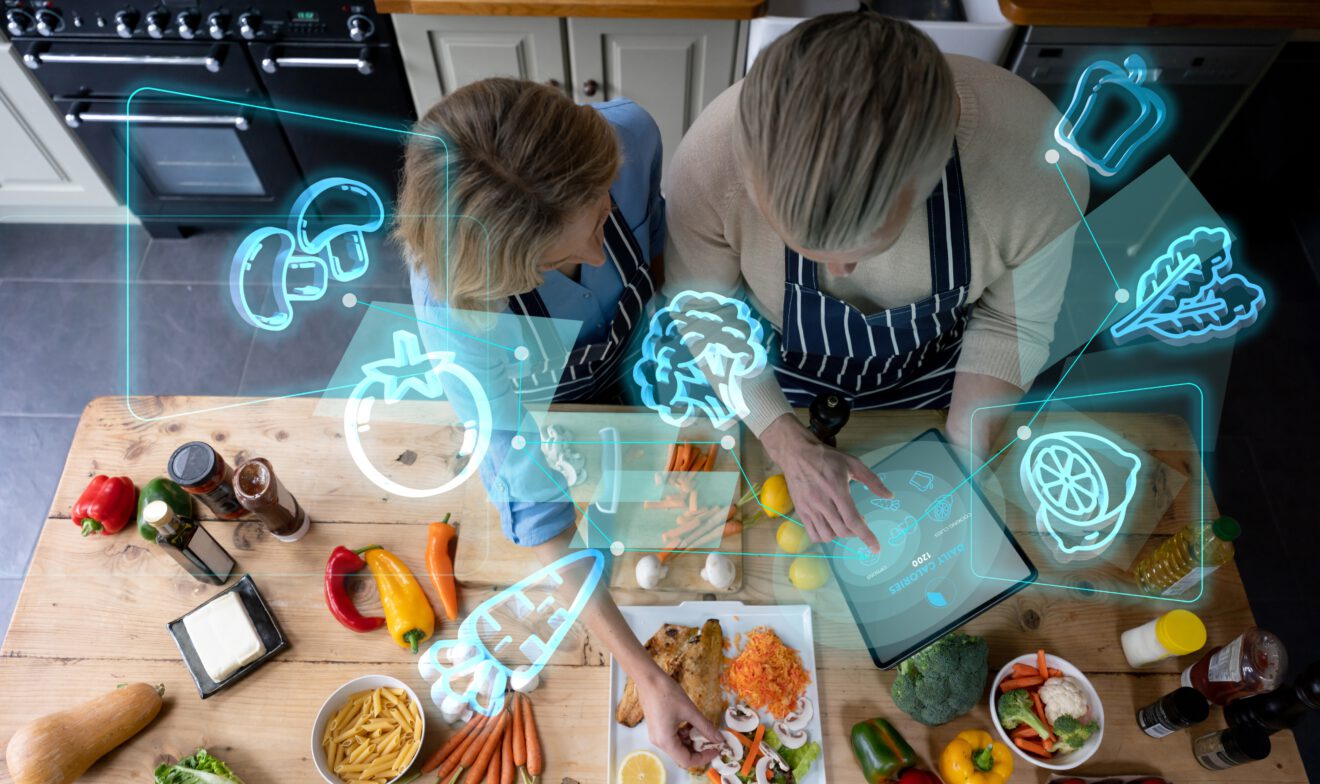The food and beverage space is one of many industries experiencing significant and quick growth of AI use. While the technology can be harnessed for a wide variety of applications, several companies are focused on AI’s ability to provide consumer insights as well as create personalized experiences.
AI food and beverage platform Tastewise analyzes data from sources like social media, home cooking analytics and restaurant menus to provide user companies — which include PepsiCo, Kraft Heinz, Nestle, Mars and Givaudan — with market trends, digital marketing concepts and foodservice execution insights. While Tastewise offers these specific services to individual clients, Miriam Aniel, head of marketing communications, shared that the company also produces monthly reports as well as an annual food trend report for the following year to provide insights to the wider market.
“The catalysts [of increasing AI adoption] in our industry are similar to what we’ve seen elsewhere: an abundance of data, the need for efficiency and the survival of the fittest,” said Paul Kavanagh, founder of BevSuite, an email software marketing firm for wine and spirits retailers. BevSuite recently launched a new AI-enabled platform designed to build promotional emails in a shorter amount of time and with higher sales conversions, according to the company.
Register for SmartBrief’s AI Impact Summit to learn even more insights from food and beverage experts — as well as five other industries — into how business functions will be enhanced and tested in the age of AI.
What’s driving brands to tap into AI?
Aniel echoed Kavanagh’s thoughts that the mass availability of data across the food and beverage industry lends itself to effective AI applications, especially to produce accurate trend analysis and consumer personalization. These insights create excellent customer experiences as well as support custom marketing campaigns and sales strategies for the corporate side of the business, she added that AI is also valuable in strengthening the operations aspect of food and beverage companies.
“AI can streamline operations, optimize supply chains, and reduce waste, all of which are critical factors in the food industry,” Aniel said.
BevSuite’s retailer-focused AI platform is also highly focused on personalization for email marketing, drawing from the more than 500,000 wines and spirits in its system to develop promotions more quickly.
“Our customers can generate revenue from those emails with a turnkey ‘buy now’ solution,” said Kavanagh. “This generates sales, builds customer loyalty, and drives in-store visits, without the need for an existing online store — secure payments and order management are built in.”
He further emphasized that these use cases are only going to continue to grow throughout the industry, especially in the food and beverage retail market.
“Over time we’ll see AI enabling hyper-personalized customer experiences while automating most if not all of the repetitive manual tasks that burden retailers,” said Kavanagh. “It’s only going to amplify the digital transformation that began for many retailers during the pandemic.”
Overcoming challenges
While AI can appear to be a simple, seamless solution to many, the technology does come with certain challenges. Kavanagh cites ensuring the accuracy and completeness of its database as well as fine-tuning the system to be specific, nuanced and compliant for the alcohol industry.
“We overcame this by implementing rigorous data validation processes and by automating continuous updates,” he shared.
Aniel shared that another hurdle is that the food industry is often fragmented, causing issues such as potential disagreement, labor-intensive professional services and wasted resources.
“Convincing traditional food industry players to adopt AI-driven solutions can be challenging due to existing workflows and systems across teams, especially at large organizations,” she explained.
As Tastewise, BevSuite and other AI companies work to overcome these hurdles, the use of the technology in the company will continue to expand as more data is collected and becomes even more widely available and homes in on consumer wants, needs and expectations for food and beverage experiences.
“AI will continue to play a significant role in product development, marketing, and supply chain optimization,” said Aniel. “We can expect increased use of AI-driven tools to monitor consumer trends and preferences in real time, and to generate content, product ideas and more to meet those preferences.”
In line with this, Kavanagh emphasizes that AI’s transformative potential extends far beyond the typical use cases and will revolutionize the entire industry.
“AI is not just about automation… it’s a catalyst for reimagining our industry.,” said Kavanagh. “ AI can be a powerful force for innovation and growth and our aim is to lead that transformation.”
Recent related stories:
- Paving the way for a more inclusive wine industry
- How will AI transform the food industry?
- How restaurants are using AI, from menu development to marketing
_____________________________________
If you liked this article, sign up to receive one of SmartBrief’s Food & Beverage newsletters. They are among SmartBrief’s more than 250 industry-focused newsletters.
